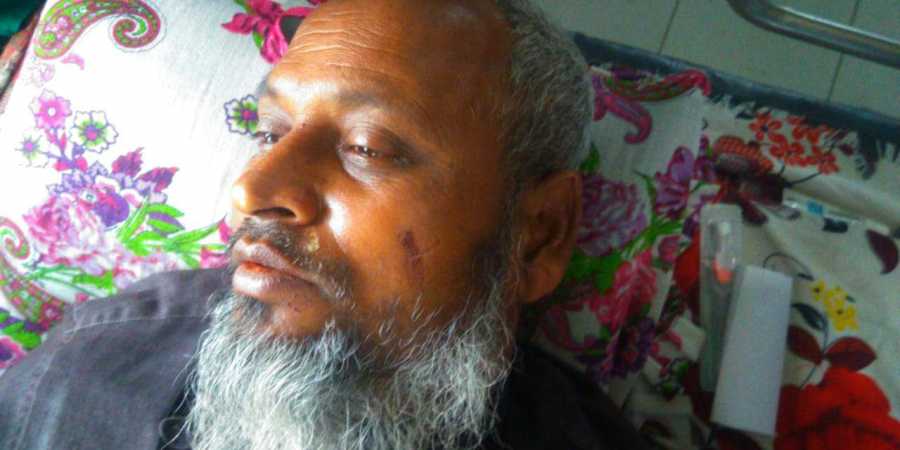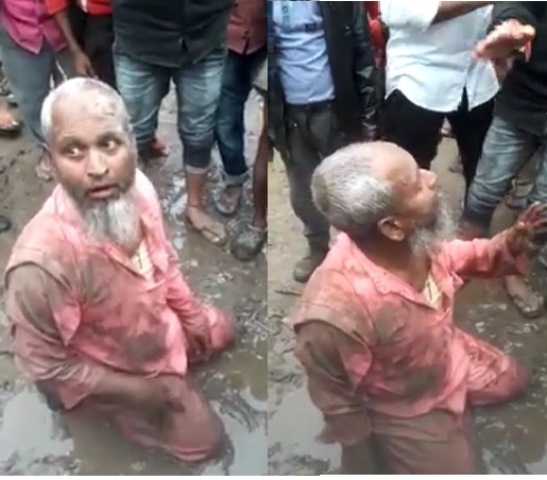On April 7, a 68-year-old Muslim man, Shaukat Ali, was thrashed, his eatery vandalised and was forced to eat pork meat by a mob in Assam’s Bishwanth Chariali area. The mob attacked Ali for allegedly selling beef.
Ali has been running an eatery in the area for over three decades, one where – just as his father did – Ali used to serve beef.
Three days before Ali was attacked, a group of around 20 men barged into his establishment and threatened him for selling cow meat. On Sunday morning, the group again came to check whether beef was still being sold and at around 3 pm, when Ali was stepping out for namaz, he was attacked.
The manner and timing of the attack – on the eve of elections – indicates an underlying motive to polarise Hindus and Muslims. Biswanath Chariali, the place where the incident occurred, is a part of Tezpur Lok Sabha constituency – where polling took place on April 11. In the last general election, BJP’s R.P. Sarma won from here by a margin of just over 80,000 votes.

During the 2019 elections, Tezpur has become one of the high-voltage constituencies owing to Himanta Biswa Sarma, who was meant to run from this seat before his name was dropped from the list of probable candidates.
Biswa Sarma, who recently said that his party will not allow “Assam to become the next Jammu and Kashmir,” was dropped as a probable candidate at the last moment and in his place, replacing the sitting MP Sarma – who resigned from the party after not being considered for re-election – the minister in-charge of labour, employment, tea work and welfare, Pallab Lochan Das got nominated by the BJP.
The Congress, on its part, fielded an Andhra-born retired IAS and a close aide to former state chief minister Tarun Gogoi, MGVK Bhanu from Tezpur.
In a video of the attack on Ali that was widely circulated on social media, amid inflicting blows on the Muslim man, the mob can be heard firing a number of questions at him: “How are you carrying beef?”, “Do you have a license to sell beef?”, “Are you a Bangladeshi?”, “Is your name in the NRC?”
The manner in which Ali – helpless, shivering and covered in slush – responds speaks volumes about the shrinking space for Muslim identity in Assam.
The identity of Shaukat Ali – a Muslim man living on the margins, wearing a dirty lungi, stitched shirt and a skull cap, and sporting a white beard – has become one that has come to be despised in the political discourse of Assam.
The religious identity of a Muslim and the citizenship of Bangladesh have deliberately been made so intertwined that a Muslim and a Bangladeshi are almost synonymous in the state.
By introducing the Citizenship (Amendment) Bill in the midst of the NRC process, the Narendra Modi government has not only sought to keep the Muslim identity out from Indian citizenship, but the Bill has also unleashed a deadly contradiction of identity and citizenship.
According to the Bill, the Hindu religious identity is – by default – a part and parcel of Indian citizenship, while the Muslim religious identity is in contradiction to the same citizenship.
As a result, it is always a ‘Shaukat Ali’ who is asked to prove his citizenship once his identity is revealed.
The attack on Ali, therefore, is not only a cruel symbol of the politics of Hindutva in the land of Shankar Azan (the symbol of Hindu-Muslim unity in Assam), it also unearths the hidden trap of identity and citizenship the fate of a Muslim in Assam has been thrown into. The way out depends on the reconciliation of the manufactured contradiction between identity and citizenship.
Nirban Ray is a PhD student at the Centre for Political Studies, JNU.

